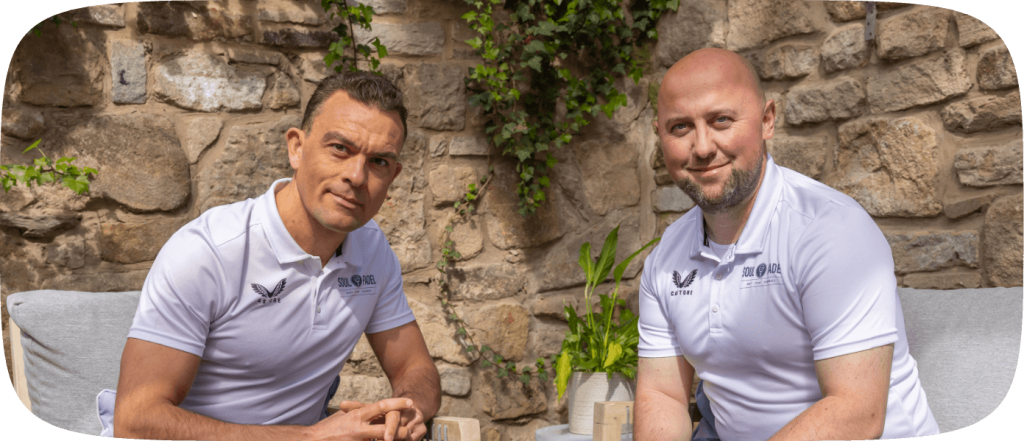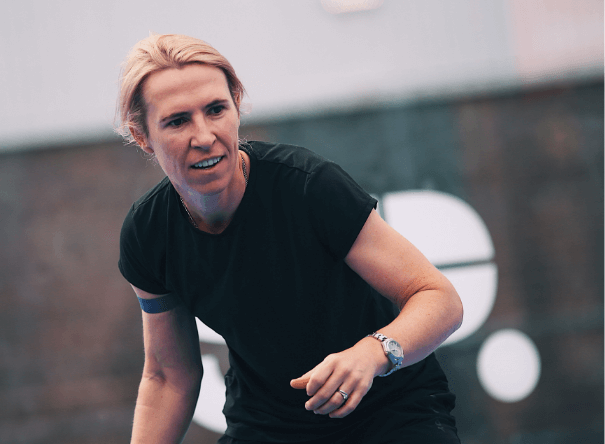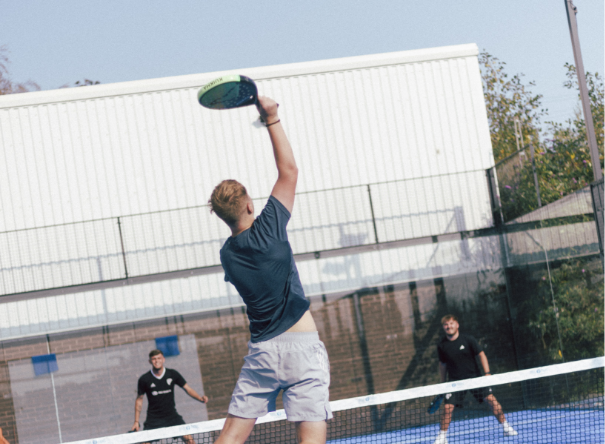Padel continues to grow in popularity, attracting increasing interest worldwide. In the United Kingdom, the padel market has seen big changes over the past year, with a remarkable 95% increase. In this article, we meet entrepreneur Mark Hewlett, who runs the company Soul Padel and is driving padel’s development forward.
The United Kingdom represents a very interesting market for the growth of padel. According to the “Global Padel Report,” 239 new courts were built last year alone, marking a 95% increase. This is just the beginning, as the coming years are expected to see even greater expansion.

With a population of over 67 million, the UK holds enormous potential for the sport of padel. In this article, we meet entrepreneur Mark Hewlett, who runs Soul Padel and plays a key role in advancing the sport’s development.
How did you discover padel?
— I played padel years ago in Portugal. My parents have a place in a small town called Salema, and there’s a padel club in Bagao and another in Luge (?). So, my experience has always been playing padel in the sunshine. I never really thought about playing in the UK.
— I’ve been in business for 23 to 24 years, primarily in retail and healthcare. While I spent most of my time in the UK, I have also worked for the UK government and lived in Australia for eight years. Additionally, I’ve lived and worked in Germany, China, and the US. It’s been a busy life.
— In June last year, we decided to start a padel company. First, we wanted to explore the industry closely, examine all the financial models, and talk to various players and business people. We officially launched and sought investment in December, which we secured. Since then, we have been making steady progress.
How many facilities do you have today?
— We’ve got two clubs operational: one in Stockport, Manchester, and another in Glasgow, Scotland.
“Padel becomes part of the community”
Mark Hewlett explains that integrating the sport into the community is an important part of padel’s development. This is something Soul Padel strives for in all of its projects:
— I think what’s important in the UK is that padel becomes part of the community. You can’t just have a model where you rent courts, and that’s it. It doesn’t work. At Soul Padel, our vision is to welcome everybody to the court. Our values are to meet, play, and connect. We want to bring this to life by having community facilities in which everyone wants to participate. We aim to develop grassroots participation and encourage kids to play the sport.
— We are exploring four channels to market. The first is a retail partnership with Decathlon, where we have co-located next to their stores. This has been very successful, with two courts in each location, soon expanding to four. We are also working with local authorities and councils to redevelop leisure facilities and embed padel within them. Additionally, we have private partnerships with leisure trusts. Finally, we want to bring padel facilities into educational institutions like universities and private schools.
— With this approach, we are not purely focused on private profit. We aim to create something different.
Soul Padel’s website provides detailed information about its ideal padel facilities. One facility should have five courts. What was your reasoning behind this?
— It’s interesting because, looking at the statistics globally, padel has been around for a long time; it’s not brand new. The average club globally has just over three courts. So why would people think that 10, 15, or 20 courts would be successful? My personal opinion is that 4 to 6 courts are a good number.
— A smaller club makes it easier for people to move around, easier to control, and it keeps costs down. You can do more with it more often. There are only so many 10-court facilities you can manage. I believe that to do this properly. You could have a padel club in every town but as a smaller club. It’s less costly to build and less costly to operate. I’m not advocating for big 10-court centers. No, I think 4 to 6 is the right way.
“Raising awareness”
The United Kingdom is still in the country’s early stages of developing padel. With 489 courts, there is significant potential to attract more padel enthusiasts and build more courts and clubs.
What are the biggest challenges in growing padel in the UK?
— We’ve conducted numerous surveys in the past month and found that only about 1 in 30 people in the UK know what padel is, and even fewer play it. The sport is still in its early stages here and has a long way to go before it develops into a mature market.
— The first challenge is raising awareness. The second is finding the right locations to build clubs in a crowded country like the UK. We need to be innovative and flexible with space. We’ve developed a location analysis tool to identify ideal spots for padel clubs based on key criteria.
— Getting permission to build can be a lengthy process due to regulatory hurdles. Building clubs is also capital-intensive, requiring significant funding for land and construction. Lastly, there is a shortage of talented coaches in the UK, with many coming from Spain and Argentina. Developing a strong coaching pipeline locally is essential.
How much growth do you believe we will see in the UK?
— I think there’s growth ahead. It will be steady, progressive growth. I hope it won’t be like Sweden’s explosive and unsustainable growth. I believe the UK market will grow with the right types of operations.
— There will be different formats and concepts, from big clubs to small clubs and from exclusive high-end clubs to those that are part of the community. I think the market will start to mature, but it is very early to predict where and when that maturity will happen.
“250 courts over the next five years”
Soul Padel has just begun its journey to develop the sport in the UK. Mark Hewlett reveals that they plan to open 250 courts over the next few years, emphasizing the importance of introducing more people to the sport to increase interest in padel.
— We are currently forecasting the opening of 250 courts over the next five years. These courts will be developed through the four channels of the market that I described earlier. We hope to establish 250 courts in various locations around the UK.
— We will always develop courts undercover or indoors, except for the summer program and pop-up locations. This is because the UK weather is not suitable for outdoor sports. Achieving this will require a lot of hard work. We’ve spent the last six months developing a property network strategy, bringing in people who can help with that, and finding the right partners to develop the clubs, from the groundworks and courts to the canopies and clubhouses. All the component parts are now in place. We’re just excited to fund that growth.
What aspects do you focus on during your expansion?
— I think our focus is to get local and build within communities. Rather than being seen as an exclusive members-only facility, we want to be seen as the padel club that everyone can access and play at. We need to lower the barriers to entry in terms of price, intimidation, and skill level. This approach will make us more accessible than some of the other facilities.
— Padel in the UK currently has an image problem; it is often seen as a rich person’s sport. But it doesn’t need to be. Padel can be a game for everyone. Our biggest point of difference will be embedding ourselves within the community and addressing the perception that padel is an expensive sport. We need to offer good value for money.
— I spent 14 years working for German discount retail businesses that offer great products at reasonable prices. We will bring the same mentality of efficiency, service, and quality to our Soul Padel concept.






